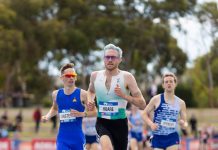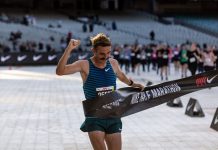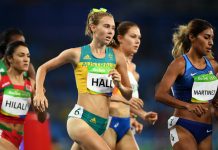‘Cause no, no, nobody knows you
When you’re down and out.
In your pocket, not one penny,
And as for friends, you don’t have any
Just six years ago, sailing was the toast of the town. A huge success at the London Olympics, lauded by all from the prime minister to Snowy on the trams, sailing now faces funding cuts in the lead-up to the Tokyo 2020 Games.
Can it be so. To paraphrase Barack Obama, ‘Yes. It can.’ From poster child to penury in less than two Olympiads.
Sailing’s rise was just as rapid, a high performance program spawned by a disappointing performance in Athens in 2004 leading to the medals’ payoff in London. Nobody can target Olympic success with such precision, of course, but as Caroline Wilson wrote in The Age at the time, sailing’s success was “fortunate, but not lucky.”
With due respect to the Jimmy Cox blues’ classic, people do know you when you’re down and out, or when you’re a down and out Olympic sport, in any case. A more apt epithet might be “misery loves company.”
Sports don’t languish in solitary confinement when it comes to Olympic funding cuts: athletics, gymnastics, water polo and volleyball are among the other sports looking at reduced funds for preparation. They’re all better off than men’s football (soccer), synchronised swimming and table tennis, which will receive no funding at all.
In terms of the classic “Class system” sketch featuring the elongated John Cleese, representing the upper class, “Mr Average” Ronnie Barker (the middle-class) and the diminutive Ronnie Corbett (the lower class), sailing and athletics have sports to look up to and down on, while men’s football has to know its place.
We should point out here that the funding referred to is that provided by the Australian Institute of Sport the high performance arm of Sport Australia which, in turn, is the new identity of the Australian Sports Commission. All sports will get Olympic preparation support from the Australian Olympic Committee.
There is a familiar pattern to the “cut” for athletics. The sport will get the full amount, according to the AIS, but only 80 percent of it is guaranteed. The remaining 20 percent is results-dependent. It’s a fine distinction, and a little like telling a starving man you will feed him every other day, making up the difference at some future time, provided the man is still alive, of course.
Actually, there is a familiar pattern to the whole funding brouhaha. We have an Olympics. Results are scrutinised. “Analysis” of the results follow (i.e. a glance at the sport-by-sport medal tally). Sports perceived as having been successful are hailed as role models for the others to follow. The AOC and the individual sports call for more funding. The government/Sport Australia/AIS comes up with a new model. Cue uproar, go to the next Olympics and repeat.
And it’s all retrospective. Who recalls sailing being held up as an exemplar before London 2012, yet, suddenly, it was. Immediately, everyone was being exhorted to emulate sailing. Yet, one Olympics later, sailing is facing a funding cut. Swimming followed a counter-cyclical trajectory, coming into the Games on a high, copping it in the neck for its perceived failure in London. How many were criticising swimming before the Games, or praising sailing’s high performance plan.
The difficulty for most Olympic sports is that they are over-dependent on government funding. The private sponsorship dollar is stretched thin and the lion’s share goes to a few high-profile professional sports which scarcely have any need for it. In an ideal world, individual sports would seek financial independence in the same manner as the AOC did after the Moscow boycott campaign in 1980.
Financial independence would allow sports to treat government money as cream on the cake, rather than the cake itself. But it is easy to say that, far more difficult to achieve it in a country Australia’s size, especially if you don’t attract the interest of a handful of wealthy individual sponsors. Still, any small steps along the path to independence are worth taking.
Otherwise, the best advice may be to plan well, recognise and reinforce the things that work while discarding the ones that don’t and wait for the moment your sport is in position to be, as sailing was in 2012, “fortunate, but not lucky.”
Then, enjoy the moment, but temper that enjoyment with the memory of what preceded it. As Jimmy Cox’s song says of the upswing:
When you finally get back up on your feet again,
Everybody wants to be your old long-lost friend.
Said it’s mighty strange, without a doubt,
Nobody knows you when you’re down and out.





























